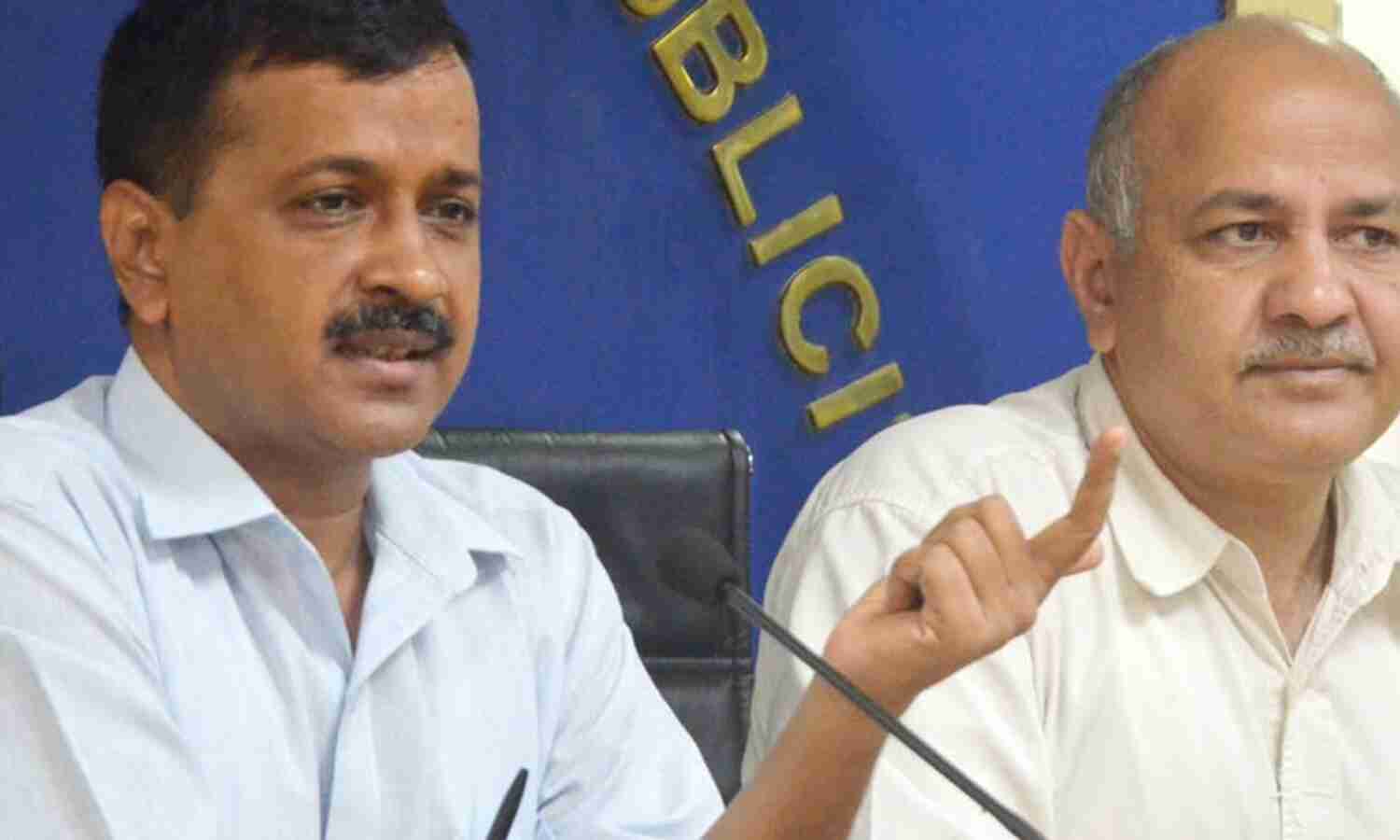Delhi's AAP Government Gets More Money Than Ever But Can't Spend It

Mumbai: The Aam Aadmi Party (AAP) government in Delhi has been able to spend only 85% of the state budget, on average, over the last three financial years, as the tussle between the AAP govt and Lt. Governor Anil Baijal takes a toll on Delhi’s Rs 6-lakh-crore economy, an IndiaSpend analysis of data showed.
The previous Congress government in Delhi, led by Sheila Dikshit, had an average utilisation of 98% between 2008 and 2013. The spending slowdown and tussle come at a time when the Delhi state budget has increased 29.3% since 2013.
“The decisions of the LG affect planned expenses,” Nagender Sharma, advisor (media affairs) to Delhi chief minister Arvind Kejriwal, told IndiaSpend. “Projects like 1,000 mohalla (neighbourhood) clinics and CCTV installations getting delayed does affect the budget expenditure.”
The plan to install 140,000 CCTVs across Delhi at a cost of Rs 350 crore was delayed due to the tussle between the AAP government and the LG, The Times of India reported on May 6, 2018. Only 160 of the planned 1,000 mohalla clinics were operational at the end of December 2017, DNA reported on April 24, 2018.
Since the AAP came to power in 2015, the LG has rejected or delayed 32 proposals, according to a government report presented by finance minister Manish Sisodia to the Delhi assembly on April 4, 2018.
In turn, the LG accused the state government of “deliberately” and “persistently” flouting the scheme of governance of the capital.
“It may be noted that this scheme of constitutional governance has been in existence in Delhi since 1993 and past governments have shared a harmonious relationship with the office of the Lt. Governor,” Baijal wrote on April 5, 2018.
“However, the present elected Government has deliberately and persistently chosen to act in contravention of scheme of governance of NCT of Delhi.”
Decisions taken by the Delhi state assembly are reviewed by the LG of Delhi, appointed by the President on the recommendation of the home ministry. The LG has administrative powers under Article 239AA of the Constitution and the Government of National Capital Territory of Delhi Act,1991 (GNCTD Act).
The Constitution says the LG’s administration powers supersede Delhi government in matters of public order, police and land, reinforced with the GNCTD Act,1991.
Source: Delhi State Budget reports for the years 2008-09 to 2018-19.
Note: *Revised estimate. The AAP presented the budget in 2013-14. AAP and Congress ran the government in coalition for 49 days in 2013-14. The AAP has been in power since 2015-16.
AAP manifesto focus: Education, health, infra. Are they delivering on it?
The 2015 manifesto of AAP focused on three issues: Education, health and infrastructure. The budget presented on June 25, 2015, for the year 2015-16, allocated 26% and 9.5% to education and health, respectively--one of the highest allocations for the education sector by any state in India.
On education, the utilisation rate was 62% in 2014-15 and 57% in 2015-16 but picked up pace to 79% in 2016-17.
On health, the utilisation rate ranged between 83% and 79%. Under the previous Congress government, the average utilisation rates were 100.5% and 79.6% in the education and health sectors, respectively.
Part of the under-utilisation of the budget may be attributed to the overlapping jurisdictions of the Centre, the state and the three municipal corporations of Delhi (MCDs).
With different parties at the helm--the AAP in the state and the Bharatiya Janata Party (BJP) at the Centre and the three MCDs--frequent tussles are reported between the AAP and the BJP.
In a tweet on June 5, 2018, Kejriwal accused Prime Minister Narendra Modi and Lt. Governor Anil Baijal of creating hurdles in Delhi's development.
My sources tell me that PM wants LG to do everything possible to stop AAP govt’s good work in education, health, water n electricity.
— Arvind Kejriwal (@ArvindKejriwal) June 5, 2018
We will not let that happen. Good work will continue. God is wid us. People r wid us. https://t.co/C42HFQdZLG
“This (rejection or delaying of approval) seems to reflect that the non-substantive queries and clarifications are merely a means to delay, derail or scuttle policies of the elected government,” Sisodia said on April 4, 2018, while presenting the LG Outcome report.
(Singh, an MSc student at the Symbiosis School of Economics, Pune, is an intern with IndiaSpend.)
We welcome feedback. Please write to respond@indiaspend.org. We reserve the right to edit responses for language and grammar.


